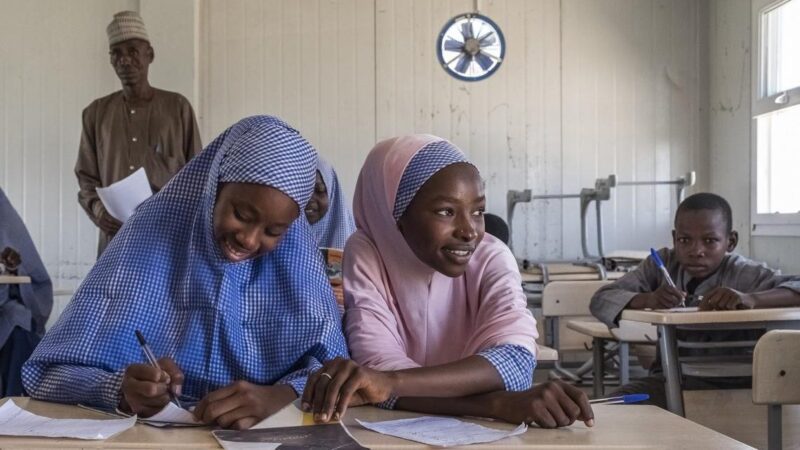Educational Issues
The Unpalatability of Education in Nigeria: Perceived Threat as Undergraduates Succumb to Self-slaughter -By Barakat Tomiwa Adeoti
To end this piece, relatives and friends are implored to always support undergraduates morally, financially, and emotionally. Also, every undergraduate having suicidal thoughts should know that suicide is not the antidote to poverty and depression. The world needs you! Requesting for help indicates fortitude, not weakness; and there is always someone around that is willing to help you pass this phase.

It is piteous that Nigeria is gradually losing her bright minds to the ugly hands of suicide. Olona, Joseph Oluwapelumi, a 300-level scholar in the Department of Industrial Design, the Federal University of Technology Akure (FUTA) hanged himself on the 21st of January, 2023 owing to depression and financial impotence. The death of Joseph, among many others, speaks for the silent voices of undergraduates in Nigeria who are also depressed and are on the brink of committing suicide because of “SAPA” (a slang used to describe financial disability among Nigerian youths). In the subsequent paragraphs, this treaties will evaluate the reasons for Undergraduates’ suicide in Nigeria and propose plausible solutions to it.
In Nigeria today, education is perceived by many as the only route to wealth and success. “If education is expensive, try ignorance”? This statement by Lincoln (1864) has impelled many Nigerians to go the extra mile to get into a higher institution. Nobody wants to be ignorant! But do you know you can be educated and still be ignorant? Ignorance of the job opportunities you can create without ‘schooling’. Devastatingly, the quest for a degree has blinded many as they have shut their eyes to other opportunities and see education as “do or die.”
Again, It is worth noting that education is not only about ‘schooling.’ Jiddu Krish says “the whole of life, from the moment you are born to the moment you die, is a process of learning.” This writer is not against education (it is the reason you are reading this piece) but this writer opposes certain stereotypic notions about education in Nigeria. For instance, a child may perform excellently in handiwork such as hairstyling, mechanic, carpentry and so on, and such a child will be tagged a “dullard” if he fails an arithmetic examination or a language test. But we do not want to hear of these things!
In addition, there is a stereotype that going to a University is equivalent to “hardship.” I have seen many people who, when their children come home during holidays, sarcastically ask them, “are you sure you went to school? You are looking too chubby for a student.” This ironically denotes that you are expected to look someway as an undergraduate. And it is the fundamental cause of depression because an o’level student is already warned to brace up for the starvation awaiting him/her in the university. This misconception should be doctored.
Further, payment of expensive tuition fees, hostel/apartment rent and the incessant demand for buying textbooks, handouts, recommended texts and other reading materials emphasize that education in Nigeria is unpalatable for the poor. Funnily enough, most undergraduates in public institutions are from the lower class. Which implies that they are directly or indirectly saddled with the burden of librating their families from poverty. Then, some lecturers will compel students that are struggling to survive to buy loads of textbooks and recommend texts when the students can easily access soft copies.
Moving on, immediate measures should be taken to curb the growing rate of student suicide in Nigeria. Since financial difficulty, low grades and depression are the major causes of suicide, all students need is a mitigation of this onus.
In lieu of the aforementioned assertion, this article recommends the donation of textbooks and materials to students and not to the school library. Governmental and non-governmental organizations and philanthropists should donate reading and writing materials to students. Most NGOs that are obliged to sponsor two or three of the many students that attend their seminars should modify their strategy. Why should you award a ‘gift’ scholarship to a student when you can impact hundreds of lives by distributing textbooks?
To end this piece, relatives and friends are implored to always support undergraduates morally, financially, and emotionally. Also, every undergraduate having suicidal thoughts should know that suicide is not the antidote to poverty and depression. The world needs you! Requesting for help indicates fortitude, not weakness; and there is always someone around that is willing to help you pass this phase.



















